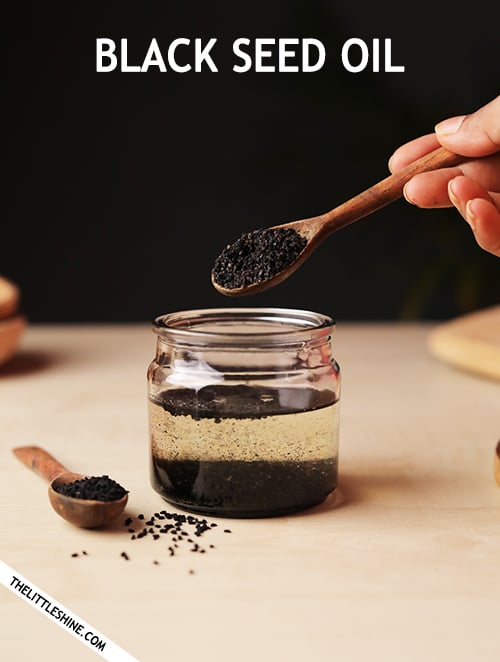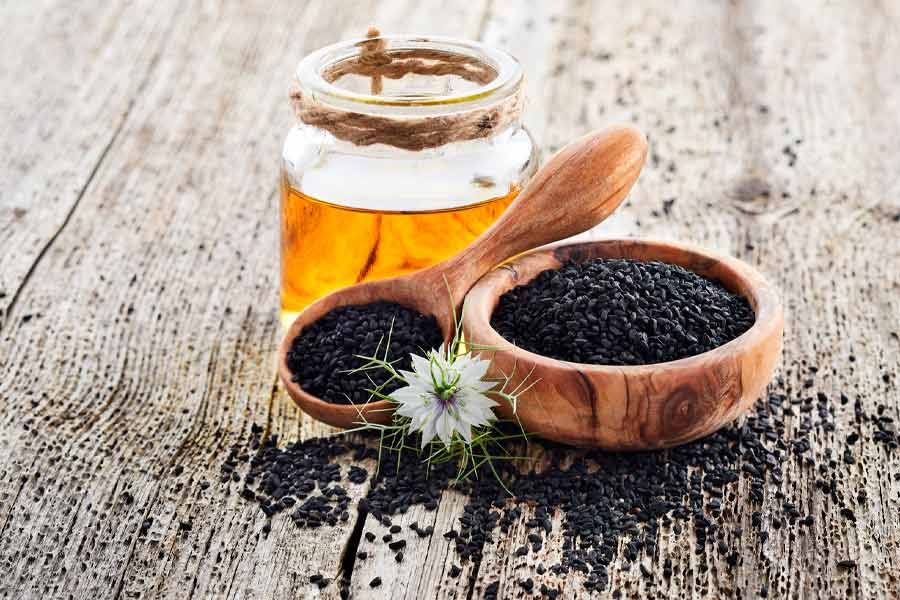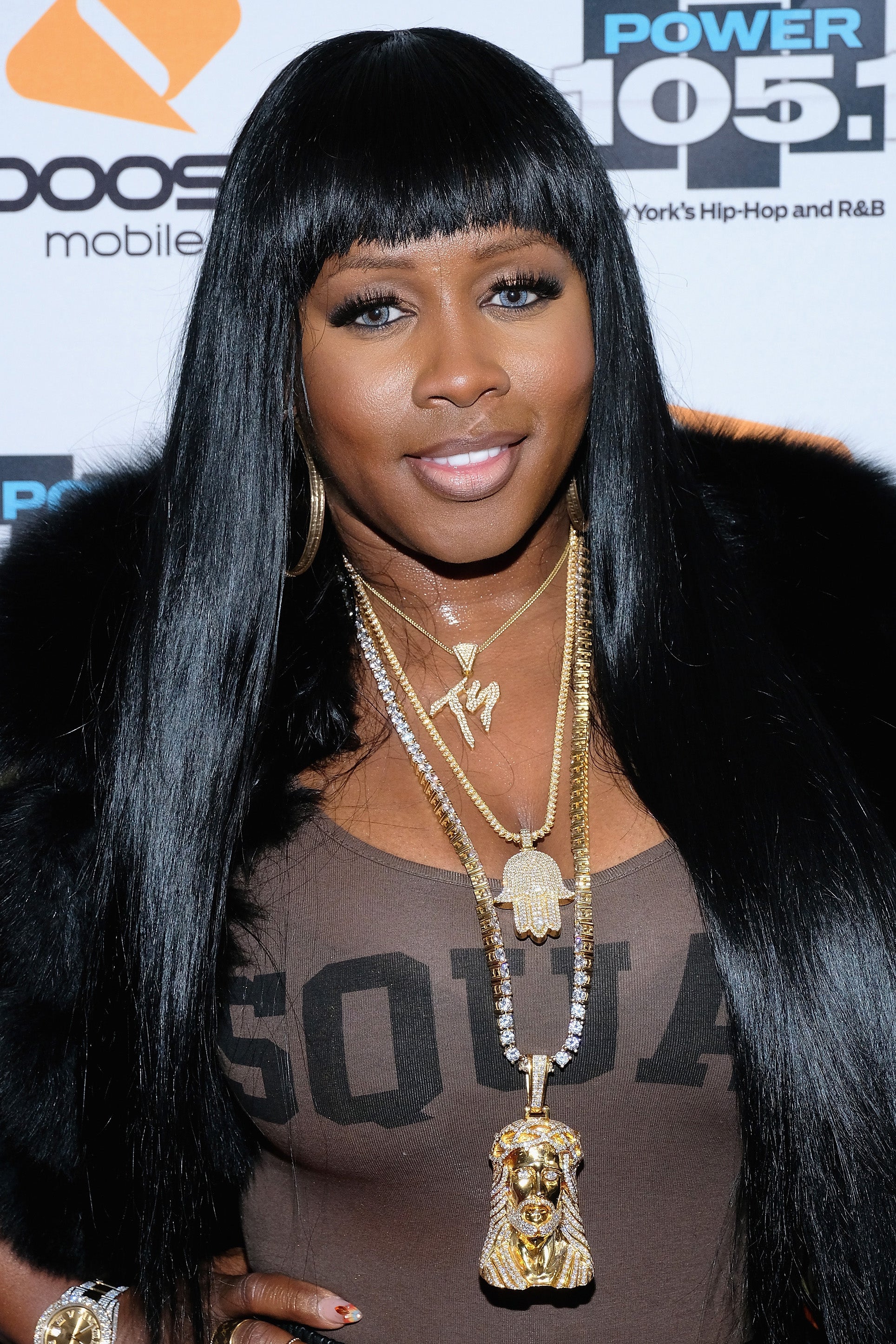Table Of Content
The process to make the hair loss oil was very involved, so only the results are included below. In 90 days, the test oil reduced shed hairs from almost 400 a day, down into the acceptable range of less than 100 a day. Cold pressed is the best form to use, whether you’re using it straight, or in a formula. Cold-pressed black seed oil is said to have a 100% skin absorption rate, whereas many other oils do not. The antihistamines in black seed oil can give you more hair by moving dormant hair follicles (we all have them) into the active growth phase.
Black seed oil benefits for your skin
Mix 1 tbsp of black seed oil to 1 tbsp of coconut oil and warm it up in a double boiler. Once the oil is warm (not hot!) apply it to your hair and scalp before you shampoo your hair. Then, cover your hair with a plastic cap and let it sit for 20 minutes – overnight. Yes, you can apply black seed oil to your hair daily if you are not allergic to it.
Helps with scalp conditions
“Nigella sativa also has antifungal properties, so it’s conceivable that it may help with those conditions. And if you really want to figure out what's going on with your hair growth and address any hair loss, make an appointment with a trichologist or dermatologist to find the right remedy for you. That’s because black seed oil has a unique profile of fatty acids, essential oils, antioxidants and phytonutrients.
Alkaline Wash for Removal of Fine Hair: How to Do It and Side Effects
Black seed oil is an herbal ingredient extracted from seeds of the flowering plant Nigella Sativa. Also known as Nigella Sativa oil, black cumin, or Kalo jeera, the oil from these seeds has been used for its medicinal properties in Eastern cultures for generations. Because of its anti-inflammatory components, black seed oil decreases internal scalp swelling that can interfere with hair growth. Certified trichologist and inventive colorist Bridgette Hill says black seed oil is believed to hydrate, moisturize, and soften hair. However, she says one caveat, like many herbal and botanical remedies, is that the benefits are largely anecdotal and not evidence-based, so you'll have to give it a go yourself and see how it works on your hair.
In an effort to offer a solution to the growing antifungal resistant problem people have with yeasts and molds, a recent study was conducted with the purpose of determining if Nigella sativa seed oil could help. In a recent animal model study, scientists discovered that black seed oil benefits the function of the liver and helps prevent both damage and disease. However, it’s important to note that nigella sativa oil may affect different hair types differently. If you do, you’ll know how difficult a dandruff-filled scalp can be to manage. Dandruff mainly occurs because the oil from your scalp makes the skin cells clump together. This happens when hair becomes excessively dry, as the clumped cells and dust accumulate in your hair, causing dandruff.

Black seed oil for hair, also known as oil from the nigella sativa plant or kalonji oil, might be the best option. The best black seed oil will have a high quantity of thymoquinone,[1] the active ingredient, be cold-pressed and contain no hexane. To enjoy the remarkable health benefits of 100% pure, organic black cumin seed oil, take a teaspoon of Health Ranger Select Organic Black Cumin Seed Oil once a day, add it to healthy beverages or drizzle it on your favorite dishes. If you’re new to the product, allow your body some time to get used to it. Black seed oil is high in antioxidants and may have several benefits for health. These include the treatment of asthma and various skin conditions, lowering blood sugar and cholesterol levels, aiding in weight loss, and protecting brain health.
Allergic reactions are rarely found in the literature, and it has documentation of being a safe topical alternative for treating hair and scalp conditions. Experimenting with different hair products can be extremely stressful. But if you cross paths with black seed oil, consider sticking with it. It’s effective for hair growth and contains nourishing fatty acids and all the ingredients needed to maintain shiny hair and a healthy scalp. If you get the green light from your healthcare practitioner, Snyder says that people typically can ingest black seed oil in the form of capsules or apply it topically to benefit skin health.

While promising, the overall research on black seed oil in reducing blood pressure and cholesterol levels is limited. One study in 99 adults with type 2 diabetes found that both 1/3 teaspoon (1.5 mL) and 3/5 teaspoon (3 mL) per day of black seed oil for 20 days significantly reduced HbA1c levels, compared with a placebo (26). While most studies use black seed powder in capsules, black seed oil has also been shown to help lower blood sugar levels (25). At the end of the study, those taking the black seed oil had lost significantly more weight and waist circumference than the placebo group.
However, oiling your hair regularly can cause buildup, and applying shampoo regularly can strip away the natural scalp oil. Moreover, black seed oil possesses antifungal, antibacterial, antimicrobial, anti-inflammatory, and antioxidant properties and is rich in oleic, linoleic, thymoquinone, linolenic, palmitic, and palmitoleic acids. Used for thousands of years to treat various ailments, black seed oil has been touted for its proposed health benefits for centuries. Here's everything you need to know about black seed oil, including where it comes from and what to look for when purchasing it in supplement form. Here are five products that use black seed oil for hair growth and overall health.
Study reveals the effects of TriNutra's black seed oil on itchy scalps - Nutraceutical Business Review
Study reveals the effects of TriNutra's black seed oil on itchy scalps.
Posted: Mon, 26 Sep 2022 07:00:00 GMT [source]
In traditional medicine, black seed oil has been used to treat a variety of health conditions. As a result, it has sometimes been referred to as “panacea” — or universal healer (4, 6). Don’t let the name scare you—this product smells nothing like onions (we wouldn’t do that to you). It goes on without a greasy feeling and absorbs quickly thanks to a blend of almond, castor, jojoba, olive and coconut oils that battle hair issues like excessive fallout, thinning, dryness and dandruff. Apparently, the hair follicles don’t have to be smothered in black seed oil. But as long as the oil is present and able to spread easily across the scalp, the active ingredients do their job.
In one clinical study on patients with hair loss, those who received a topical treatment of coconut oil plus black seed oil and several other herbs experienced significantly less hair loss over 90 days compared to the control group. Just because there's no clear-cut evidence that says black seed oil doesn't generate hair growth doesn't mean it can't encourage a healthy environment for hair to grow. "It also has omega fatty acids, which help improve circulation, which is essential for healthy hair growth," Koestline points out. "These have not been tested yet and are just theories to how it can help promote hair growth." Thymoquinone is one of the main chemicals in black seed oil that's believed to contribute to hair growth, but that's just one of its benefits. "Thymoquinone appears to have significant antioxidant properties and has been shown to reduce inflammation," Dr. Skotnicki says.
One interesting thing about hair is the amount of oil or sebum each strand produces differs. This factor is a key indicator of your hair condition, determining whether you will have dry or oily hair or whether there will be a perfect balance. And as the inflammation clears up, the hair fall decreases, and the normal hair growth cycle gets restored (2). The black seeds’ glory is emphasized in many traditional texts of the Middle East, Asia and the Mediterranean.












